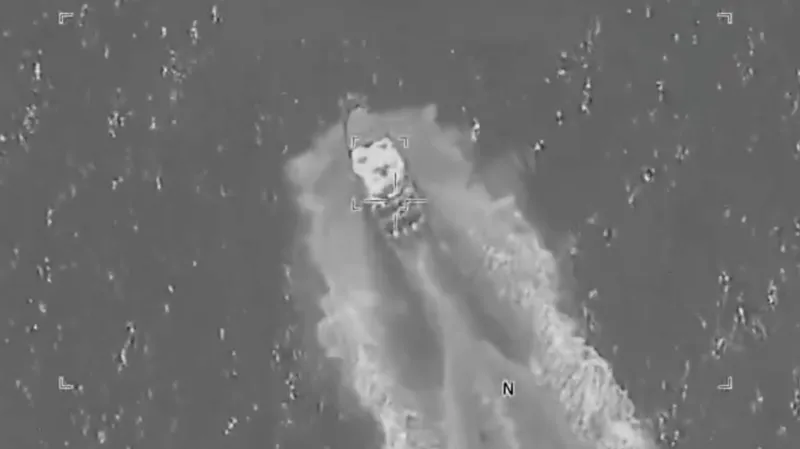New Delhi, October 19, 2025: In the months following Operation Sindoor, Indian tourist traffic to Azerbaijan and Turkey has fallen sharply, reflecting growing concerns among travellers over geopolitical developments in West Asia. According to recent reports, the decline has been particularly pronounced for Azerbaijan, which witnessed a 56 per cent drop in Indian visitors during the May-August period, while Turkey recorded a 33.3 per cent fall.
Industry observers link the downturn directly to the positions taken by both countries during the conflict. In May, when Operation Sindoor saw India undertaking targeted strikes in cross-border operations, Azerbaijan publicly aligned with Pakistan’s stance, while Turkey backed Islamabad’s demand for an international investigation into the Pahalgam attack. Historically, Turkey has also supplied weapons to Pakistan, adding to the sensitivity surrounding travel decisions for Indian nationals.
Tourism Data Reflects Sharp Reversal
Data from the Azerbaijan Tourism Board indicate that Indian visitor numbers had grown 33 per cent year-on-year in the January-April period of 2025. However, the same data show a near 56 per cent decline in arrivals between May and August. This sharp reversal comes despite the steady growth of tourism from India to these destinations in previous years, bolstered by the availability of direct flights and the strategic position of Istanbul as a gateway for broader European and Middle Eastern travel.
Similarly, Turkey, long considered a popular destination among Indian travellers for its historical, cultural, and shopping attractions, experienced a 33.3 per cent decline in visitor numbers. Travel experts suggest that this trend is directly linked to calls for boycotts and the heightened geopolitical sensitivities following Operation Sindoor.
Surge in Booking Cancellations
Leading travel booking platforms have reported a significant decrease in new bookings to both Azerbaijan and Turkey, coupled with a spike in cancellations. According to a spokesperson for MakeMyTrip, bookings for Azerbaijan and Turkey fell by nearly 60 per cent in the week immediately following the ceasefire and public appeals for a boycott. Meanwhile, cancellations surged by 250 per cent during the same period.
EaseMyTrip’s Chief Executive Officer, Rikant Pittie, observed that Indian travellers were redirecting their travel plans to alternative destinations perceived as safer or politically neutral. “Destinations such as Georgia, Serbia, Greece, Thailand, and Vietnam have seen increased interest among Indian tourists, as travellers seek locations unaffected by geopolitical tensions,” Pittie said. He added that the platform had recorded cancellation rates of 22 per cent for Turkey and 30 per cent for Azerbaijan, a clear indicator of the impact of recent events.
Visa processing data corroborates these trends. Platforms such as Atlys reported a 42 per cent decline in visa applications from India to Turkey and Azerbaijan in the post-May period. The drop in applications not only reflects the immediate effects of political developments but also suggests a cautious approach among Indian travellers in light of potential safety concerns and diplomatic tensions.
Geopolitical Factors Influencing Travel Choices
Analysts note that the tourism industry is highly sensitive to geopolitical developments, particularly when countries with previously stable tourism growth take positions perceived as unfriendly by prospective visitors. In the case of Azerbaijan and Turkey, the public alignment with Pakistan during Operation Sindoor appears to have triggered a reevaluation of travel plans by Indian nationals.
Historically, both countries had seen steady growth in Indian tourism. Azerbaijan’s scenic landscapes, rich history, and cultural festivals had drawn increasing numbers of Indian visitors, while Turkey’s blend of historical architecture, shopping districts, and Mediterranean coastline had made it a perennial favourite. Direct flights connecting major Indian cities with Istanbul and Baku further facilitated this growth, making the recent downturn all the more noticeable.
Industry Response and Strategic Adjustments
Tour operators and travel agencies have had to adjust rapidly to the changing sentiment among Indian tourists. Many are now actively promoting alternative destinations in Europe, Southeast Asia, and the Middle East that are perceived as politically neutral. These include destinations like Greece, Serbia, and Georgia, which are gaining popularity for their cultural heritage, scenic landscapes, and relatively hassle-free visa processes. Southeast Asian countries such as Thailand and Vietnam are also benefiting from redirected tourism flows.
Industry insiders warn that a prolonged geopolitical standoff could have long-term implications for tourism-dependent businesses in Turkey and Azerbaijan. Hotels, resorts, airlines, and local tour operators that had heavily invested in Indian clientele may face significant revenue losses if the decline persists through the peak winter travel season.
Future Outlook
While the immediate impact of Operation Sindoor has been pronounced, experts note that tourism patterns are fluid and can be influenced by changes in diplomatic relations, security assurances, and targeted marketing campaigns. For Azerbaijan and Turkey to regain Indian tourist confidence, a combination of proactive engagement, transparent safety measures, and cultural outreach may be required.
In the meantime, Indian travellers are increasingly cautious in their choices, prioritising destinations perceived as safe, politically neutral, and culturally accessible. This shift reflects a broader trend in global tourism, where geopolitical considerations are becoming an increasingly significant factor in shaping travel behaviour.
As of now, travel portals, airlines, and tourism boards continue to monitor the situation closely, adapting strategies to accommodate changing tourist preferences. The fallout from Operation Sindoor serves as a reminder of how international conflicts and diplomatic stances can have immediate and measurable impacts on industries such as tourism, which rely heavily on perceptions of safety, accessibility, and political neutrality.


Leave a Reply